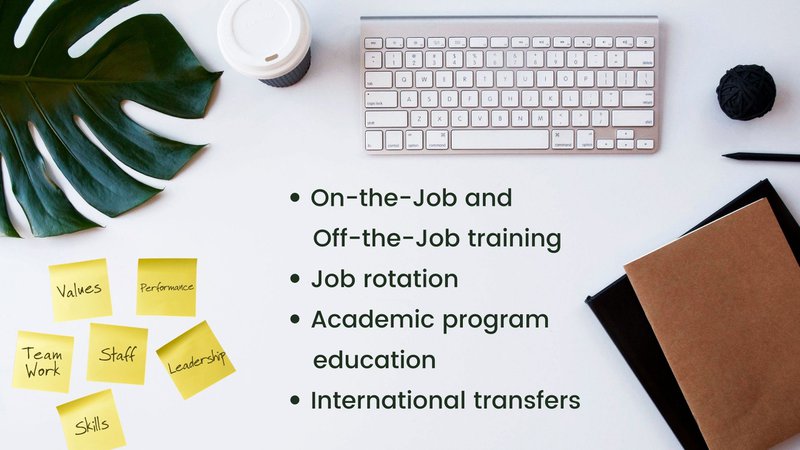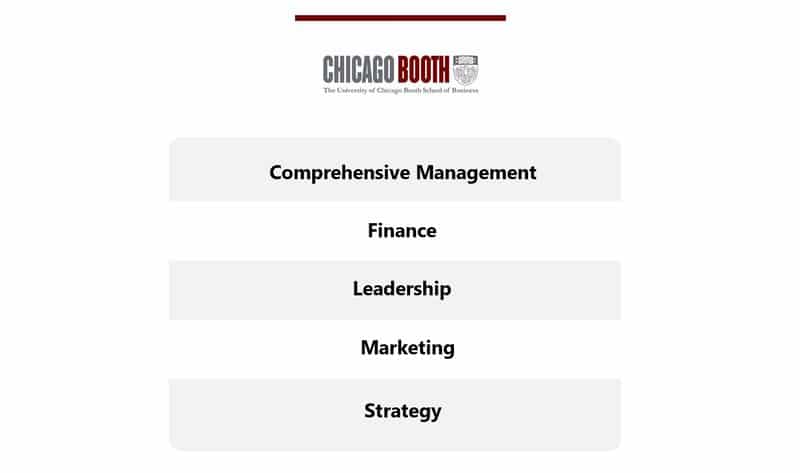
What Is Management Development?
Certain words are very often tossed around in corporate circles. One of these words is “management development.” A large workforce consists of teams, and leaders, known as managers, who head all these teams. Managers are the leaders your employees know and the people who represent your brand. It is for their growth and improvement that management development is vital.
Why is it vital? Well, there are multiple reasons why managers at your company need to be nurtured. If your managers fail their jobs, you will have ranting customers to deal with and dissatisfied employees. Not the least of the damage that incompetent management and lack of leadership can damage your company’s reputation and overall work culture.
A management development program is handy to avoid such failures in your managers. But knowing the importance and conducting one such program is only the first step. Numerous companies take this first step and launch their management development programs. But do they all succeed in giving their managers the best training?
If not, why don’t they? How can one conduct management development programs informed by updated techniques and efficient training methods? Let us investigate to find answers to all these questions.
Purpose of Management Development Programs

Managers are vital to any company, and bad management often becomes costly. But what purpose does management development practically serve?
A good management development program can improve a manager’s performance. Here’s how:
- Your workforce efficiency depends upon a strong base and trained leaders to look for solutions. To begin with, a good development and training program can help managers get the basics right regarding management at the base level. After all, it is from the grassroots that management starts.
- A company might have numerous talented employees but can still fail to help them realize their full potential. This is where well-trained managers can make a difference by using their team members best. After all, it is the managers who work closely with their teams. And the managers can help the workforce reach the pinnacle of performance.
- On an individual level, your company’s managers have their aspirations. A good program can help them inch closer to their dreams. It can help them grow as management professionals, which, in turn, will help your company.
- Train managers in planning and execution. Improve their knowledge to take advantage of opportunities, prevent potential risks for the organization, and develop their execution skills to accomplish its goals.
- Lastly, management development programs can give your company the operational smoothness of good management if done right. This will positively affect your company’s work culture and enhance your brand’s overall quality and value.
The best companies in every industry recognize the importance of training and development of the workforce. The programs are also of prime importance to such companies. In a nutshell, management development aims to produce great leaders and managers.
The Current Techniques for Management Development

Now that we’ve discussed management development’s broader purpose, let us move on to the general methods. Specific techniques are intrinsic to management development and must be an efficient training and development program.
Training
Training is the initial part of any management development program on the job and off the job. The training period varies significantly and can be from one day to months. The on-the-job training means the manager has the training while doing their day-to-day activities. On the other hand, off the job means they will invest their time out of their daily tasks to learn needed skills. Usually, the major companies have teams to develop their training on and off the job.
Job Rotation
Job rotation is another way to train your managers to be open to new, unfamiliar challenges. This gives them a solution-minded approach and enhances their value as employees capable of working across departments. For instance, a brand manager can rotate into a sales position to attend to some clients and understand their needs better.
International Transfers
International transfers can turn out to be a huge plus for your managers to grow as professionals and individuals. Furthermore, it can enhance their skill sets at an individual level, which can only be highly beneficial to your company.
Coaching
Coaching is a process where a senior person usually trains a learner to achieve personal and professional goals. The trainer is the coach, and the trainee is the coachee. There are similarities with training, but you analyze and train the professional as a whole, including the personal aspects of the coaching. But most importantly, a coaching process is a mix of mentorship and training.
Mentorship Program
This program is based on senior managers helping the new ones. The most experienced executives already understand the culture, effective real business techniques, and orient progressing managers.
Academic Programs
Academic program education might be the least practical part of the process, but no management development program is complete without it. After all, it is the perfect blend of academic and theoretical know-how and practical resourcefulness that makes a great manager. It also teaches managers the most up-to-date knowledge.
Academic Programs – Topics Covered by the Main Business Schools
We selected to discuss the top business schools considered on the 2020 Forbes business school ranking. Although the executive courses with shorter duration are not evaluated on this ranking, the criteria assess several other factors that impact the school performance, such as salary increase of alums.
Chicago Booth Executive Program
- Location: Chicago, Hong Kong, and London.
- Typical courses length: 2, 10, 30 days,
- Online and Offline options.
- Individual and Company options.
- Business school link.
The Chicago Booth Executive program runs on three campuses: Chicago, Hong Kong, and London. The way the three are spread across the globe adds a global perspective to their courses.

Furthermore, the course is offered in four different learning formats that give it a dynamic approach. Their other formats are Live-online programs, Online programs, Hybrid Programs (consisting of in-person and online learning), and additional distance learning formats, including pre-recorded and translated guest lectures.
Stanford Management Program
- Location: Stanford Campus, US
- Typical course length: Usually 5-7 days with self-paced options.
- Online and Offline options.
- Individual and Company options.
- Business school link.
The Stanford Custom management development program truly takes personalized programs to a different level. To begin with, you will have to fill out a form giving details about your organization’s needs.
The custom program is then developed, keeping the information provided in the form.
The Stanford course format is also decided based on the organization’s needs in which they work with you to conclude the learning format. They offer both online and in-person programs while also being capable of blending both formats.
Kellogg’s Management Program
- Location: Evanston, Chicago, and Miami.
- Typical Courses Length: 5, 10, and 20 days.
- Online and Offline options.
- Both individual and company options.
- Business School Link.
Kellogg’s executive program is carried out on three different Evanston, Chicago, and Miami campuses. Kellogg’s management development program offers a holistic approach to development.
Their curriculum covers accounting, Finance, Management, Managerial Economics, Marketing, and Strategy. Kellogg’s management programs include everything from classroom lectures to practical activities to give aspiring managers everything they need to deal with the ever-changing business industry.
Harvard Business School
- Location: Boston
- Typical Courses Length: 5 days, 20 days, 45 days, three months, and six months.
- Both Online and Offline options.
- Both individual and company options.
- Business school link.
The Harvard management development program for organizations is based on personalized development programs for every business. They are in touch with your organization throughout the program, which facilitates them in understanding the current challenges of companies.
The Program design starts with conducting a needs assessment for your organization and moves on from there. The program also strives to balance interactive learning and the much-needed time for individual reflection.
The program offers various teaching methodologies, from case-based learning and peer coaching to action learning projects and application workshops.
Wharton Management Development Program
- Location: Philadelphia, San Francisco, Barcelona, Shanghai, and Dubai.
- Typical Courses Length: Options range from 3-4 weeks to customized self-paced programs.
- Both Online and Offline options.
- Both individual and company options.
- Business School Link.
The Wharton Management development program is based on its discovery, design, delivery, and impact measurement model. As evident from the model, they begin by understanding your organization’s needs and designing their program accordingly.
The Wharton management program stands out in how they collaborate with your organization through to the end. The learning methodologies used in the program include action learning, applied learning, simulation, and experiential learning.
Tuck Executive Education
- Locations: Tuck School Campus at Dartmouth, Hannover (NH), and other sites worldwide.
- Typical Courses Length: 1 week, two weeks, and self-paced.
- Online and Offline options.
- Both individual and company options.
- Business School Link.
The Tuck Executive Education program at Dartmouth stands out because the location of the courses is flexible. They provide individual and organizational development programs at campuses spread across the globe.
The faculty’s action learning projects stay with the student’s way beyond the classroom and come in handy when facing challenges in the future.
Columbia Business School
- Location: New York.
- Typical Courses Length: Ranging from 1-3 days to 6+ months.
- Blended, Live-Online, Online, and In-person options.
- Both individual and company options.
- Business School Link.
The Columbia Business school management development program is suited to organizations worldwide because of its flexible schedule. Their virtual program includes sessions starting from one hour to those that go on for an entire day.
The program is flexible in its approach to learning and promotes peer learning and building a community of future leaders. The cross-disciplinary program covers finance, Marketing, Strategy, Social Enterprise, and Comprehensive and Focused leadership.
Cornell Executive Education Program
- Location: 21 locations (mainly in the US) such as Ithaca-NY, New York City-NY, China, and across the Americas.
- Typical Courses Length: 2, 3, 5, and 6 days, three weeks; 4,5 and 6 two-week online courses, five three-week courses, etc.
- It is blended, Online and In-person options.
- Both individual and company options.
- Business School Link.
The Cornell Executive development program promotes courageous innovation. The program clearly intends to encourage critical thinking in those who enroll. Added to that is the emphasis on emotional intelligence and shaping entrepreneurial mindset in aspiring managers, making the program unique.
The Cornell Executive development program values the digital-driven future that awaits us. For this reason, their development program focuses more on applied knowledge than the traditional theoretical learning approach.
MIT
- Location: Cambridge, MA.
- Typical Courses Length: 2-5 days and longer.
- In-person and Live-Online programs.
- Individual and Company options.
- Business School Link.
The MIT Executive program for organizations has proved instrumental in training future leaders in numerous top organizations. The program’s use of the Avatar mechanism in delivering digital learning is as close as possible to the personal, humane touch of online learning.
The program is separated into eight phases: twice the usual segregation, which shows how attention to detail shapes the MIT Executive program.
Michigan Ross Custom Development Program
- Location: Ann Arbor, MI
- Typical Courses Length: 5 days to over a month, along with self-paced options.
- Online and Offline options.
- Both individual and company options.
- Business School Link.
The Michigan Ross development program understands the importance of and works on various levels to deliver practical training to your managers who will eventually become tomorrow’s leaders. They also work on discovering, designing, producing, and deploying.
Notably, the program collaborates with the organization even after completion. This collaboration is directed towards aiding in follow-up activities, consultancy, and impact analysis.
Berkeley
- Location: Berkeley Campus and India.
- Typical Courses Length: 1 year
- Online and Offline options
- Both individual and company options.
- Business School Link.
The Berkeley Executive Management Program includes classes in Berkeley and India. The program also includes online lectures and follows a program module that caters to aspiring executives from across the globe, especially in emerging economies.
The year-long program comprises six academic modules comprising online and in-person interaction in Berkeley and India.
Yale School Of Management
- Location: New Haven
- Typical Courses Length: 1 week, three weeks, one month plus, and self-paced.
- Online and In-person programs.
- Both individual and company options.
- Business School Link.
The Yale School of Management is a dream for many aspiring managers. Now that they provide management development programs for both individuals and companies, it is a mouth-watering prospect for aspiring companies dedicated to nurturing their young managers.
The program is carefully curated to look beyond the “traditional school disciplines,” as the Yale website terms it, and strives to help your organization walk a different path.
The Yale School of Management Executive Education program boasts of top leaders from business and finance. Their faculty also consists of scholars in political science and international relations that help give students a sense of perspective, practical experience, and insight.
A Practical Approach to Management Development Programs

We talked earlier about how most management development programs run by companies leave a lot to be desired. Many argue that a change in approach can rejuvenate management development programs.
There are numerous ways management development programs can see new light to become more practical and valuable.
One Size Should Fits More
Firstly, professional growth and development do not work on the one size fits all approach. Your workforce comprises individuals who have qualities that need to be nurtured. Hence, any management development program must follow a personalized approach to succeed. This can be done by:
- Allowing less experienced managers to put their whole selves into trying out their unique ideas.
- Supporting them to be courageous enough to voice their opinions.
- Building an atmosphere of a healthy exchange of ideas amongst managers and their mentors.
- Acknowledging the manager’s aspiration for growth and talking about how they can grow within the company.
- Telling the managers how the critical insight they receive in training comes in handy in everyday situations.
Management Development Should Be More Connect to Real Problems
Companies cannot isolate a management development program from the actual reality of the manager’s life at your company. Managers face a plethora of challenges daily.
These managers’ development must arm them with the necessary tools to cope with their myriad challenges. Furthermore, your company’s management development program should align with the reality of your company’s work culture.

Developing a Manager Should Be a Current Process
Lastly, a management development program should be seen as a process. It has to be a gradual development program with continuous follow-ups and managers’ opportunities to apply in real life.
Criticism and the Need for Change in Manager Development Programs

Most companies today provide manager development programs. According to Gallup, 66% of managers claim that their employer offers a management development program. Many young managers consider it a significant perk and choose the company based on it.
Although it is good to see most young managers getting a development program, other data suggests the lack of results from the management development programs.
For instance, among the 66% that receive manager development programs, only 35% vigorously nod to knowing their performance’s effect on promotion opportunities. This clearly shows that although leaders are willing to invest in manager development, there is still a lot of scope for management development programs.
After all, if managers feel they are not growing to their full potential, it is never a good sign for their growth prospects.
Conclusion
It is your workforce that transforms your ideas into reality and growth. You require well-trained managers to get the most out of your talented crew. Hence, the importance of management development programs is pretty much a fact we must all agree upon.
However, the challenge remains to ensure that your management development program is exactly what your young managers require. It is, undoubtedly, an effort worth making to ensure that the program meets the on-ground realities and is also in line with the work culture prevalent at the company.
In a nutshell, managers will only grow if they are not only taught the tricks of the trade but are allowed to innovate and implement what they’ve learned coupled with their unique approach. After all, professional growth is only possible when taken up at a personalized level and understanding the day-to-day challenges that managers face in today’s fast-paced business world.

Christian has over ten years of experience in marketing agencies. Currently, he has been dedicating his time to a tech startup and also writing for major publications. He loves podcasts and reading to keep up with the latest trends in marketing.

Management development is crucial for organizations to cultivate effective leaders. Among the most effective techniques are mentorship programs, executive coaching, and experiential learning. Additionally, renowned programs like MSP (Managing Successful Programs) provide comprehensive training in strategic planning and project management. By combining these methods, companies can equip their managers with the necessary skills to navigate complex challenges and drive success. Investing in management development is an investment in the future of any organization.
Thanks for the suggestion, Charlize.
Project management plays a vital role in any organization’s success. Effective management development programs should prioritize project management techniques. By honing skills like planning, communication, and risk management, these programs empower leaders to drive projects to completion. With the right training, managers can ensure efficient project execution and achieve desired outcomes.
Training is an essential component of effective management development. From leadership programs to communication workshops, investing in employee training yields remarkable results. It not only equips managers with essential skills but also fosters a culture of continuous learning. By prioritizing training, organizations create empowered leaders capable of driving growth and adapting to ever-evolving business landscapes.
Management development is crucial for organizations to thrive in today’s dynamic business landscape. Effective techniques and comprehensive programs play a pivotal role in equipping managers with the necessary skills and knowledge. Staff development and training, integrated with real-world experiences, fosters leadership capabilities, strategic thinking, and effective decision-making. Investing in management development reaps long-term benefits for both individuals and the organization as a whole.s to the team behind this valuable training resource!”